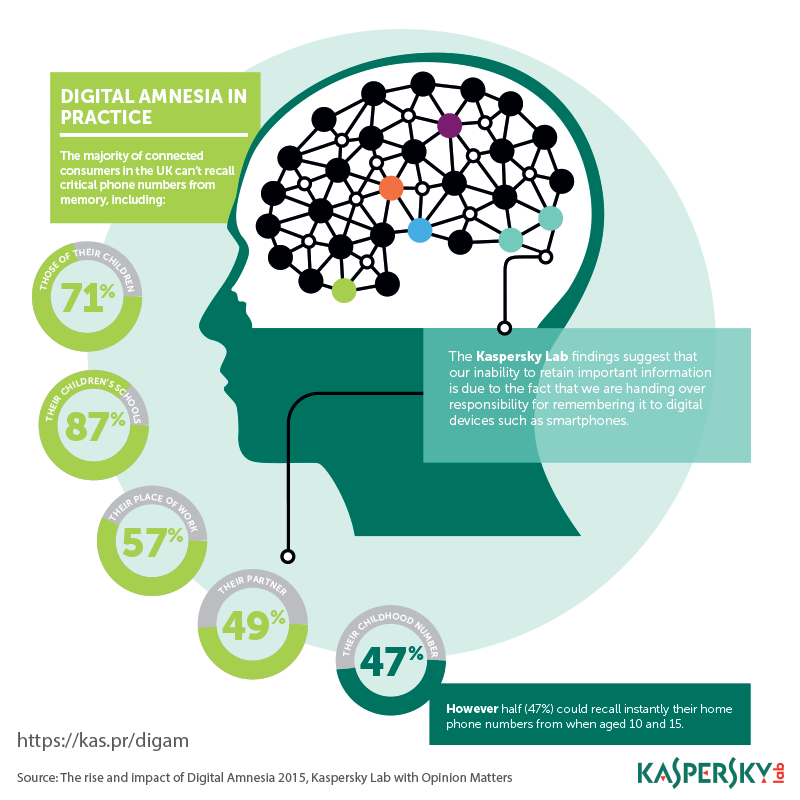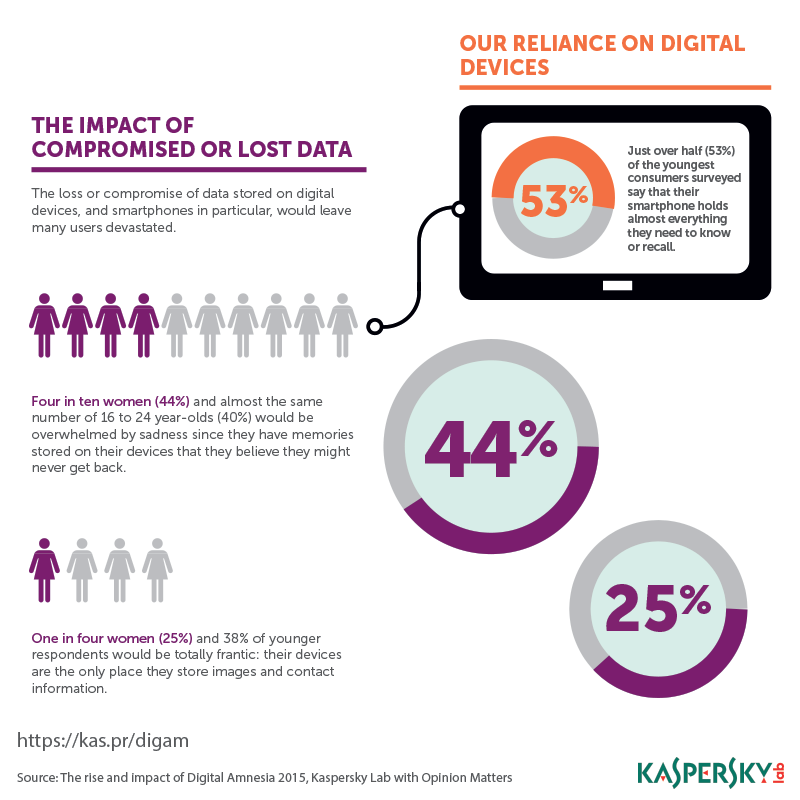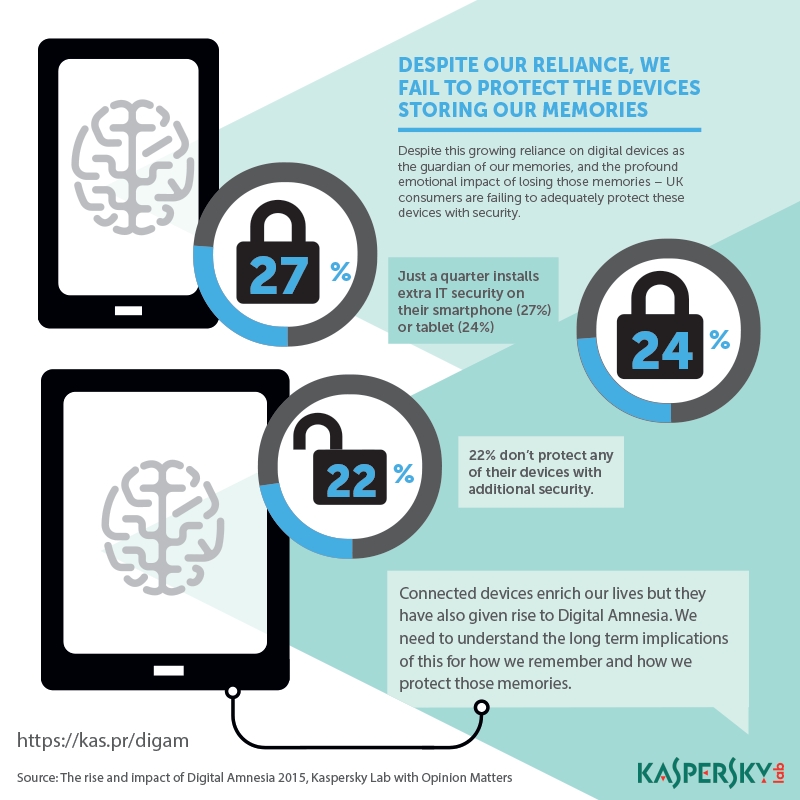Connected devices give us access to an unlimited source of information: the internet. But they also serve as a reserve storage for un-mindful owners. Today, the majority of smartphone users can be called “absent-minded” at least compared to their parents and grand-parents who didn’t have access to mobile phones.
Reliance on digital devices is quite natural. In our increasingly hyper-connected world people simply have too many numbers, addresses, tasks, account names, passwords and PIN numbers. It’s simply impossible to remember everything.
To look into this, Kaspersky Lab has initiated research to analyse how digital devices and the Internet affect the way people recall and use information today – and what, if anything, they are doing to protect it.
As many researchers say, when we store information externally, e.g. in a phone, we thereby encourage our mind to forget it. Scientists say that forgetting is not a bad thing at all: our brains have a capacity limit in terms of how much information is accessible.
If we do not recall old memories, information gradually fades until we forget it. A brain can also overwrite irrelevant data with more topical facts and memories.
That’s why during the study more than half of surveyed adult Europeans could not recall their children’s phones or the office phones without looking into their mobile phones. Around a third were unable to remember their partner’s number.
79.5%, the vast majority of the Europeans surveyed, admit using the internet as a universal reference book. All the information that we previously had to memorize or look for elsewhere is now stored just a few clicks away. At the same time it’s not just the question of convenience but of necessity as well: 61% of respondents say they need answers quickly and simply don’t have enough time for libraries or books.
So, smartphones are the ubiquitous companions for many of us. They have become an extension of the human brain and just as the skull protects the brains, mobile phones need protection as well. The majority of motorcyclists put on helmets, but only a few of those surveyed managed to adequately protect their phones with IT security. One of the previous Kaspersky Lab studies also shows that women often secure everything less than men. Not a big problem, you might say?
What is Digital Amnesia and how are we going to live with it? #DigAm #smartphones #privatedata
Tweet
Of those surveyed across Europe, more than 40% of respondents (especially women and younger people) claim that for them the loss or compromise of data stored on digital devices, and smartphones in particular, would cause immense distress. 25% of women and 38% of younger respondents say they would panic: their devices are the only place they store photos, messages and contact information.
Protect your personal data in case your device is lost with Kaspersky Internet Security for Android. http://t.co/C805E0h1KK
— Kaspersky (@kaspersky) February 7, 2014
Modern security solutions are vital to protect your devices from malware, viruses and real-time Internet threats. You can even use them to protect your device if it’s stolen, by remotely locking the device and protecting your data. It’s unpleasant to lose a valuable device; even worse is to know that your data is in the wrong hands.
See for yourself in our quiz, do you still remember things or has your smartphone already became the one and the only storage for all your sensitive information?
 Android
Android




 Tips
Tips